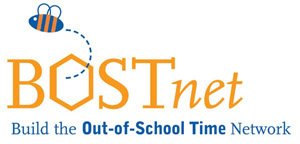
How many times have you heard an educator say, "let's not reinvent the wheel" or a variant of that statement? Often people say what they wish they didn't do. This statement would not be used so often if it did not describe exactly what goes on in the world of education (this includes out of school time programs as well as formal school time). Educators reinvent the wheel with frightening regularity. One reason may be that there is always an influx of new people into the field of education, and they may want to do things differently because of a host of reasons: not experienced enough to recognize the wheels invented by others, not told where wheels are filed or what box they are kept so newbies create their own, or in most cases, the old wheel is covered in the cooties of whomever came before (effacing the past was good enough for pharaohs and emperors, so why not managers and middle managers? ). The wheel is reinvented and then klatches of colleagues moan, "why did so-and-so think they had to reinvent the wheel?"
The other issue may be that of funding. Funding is measured and managed by a host of computer programs such as Razors Edge and a host of organizations that sell services to non-for-profits such as The Foundation Center, but computer programs and development consultants are still trying to uncover the thinking behind people, the heart of the funding community. These people, like all people, are human and act in often unpredictable ways. Boards of foundations follow their own trends, internal discussions, and while we don't want to lose funing to say it, a great deal of woolgathering. Patterns change, language changes in grants, and educators recast the same old questions to attract new dollars or interest. How often are long-standing programs or initiatives canceled or recast not because they were not working or were ineffective, but because funders had lost interest? The wheel is again reinvented, and again a room full of educations say, "there's no need to reinvent the wheel."
It can be said that all business needs to reinvent themselves. The consumer culture demands the new. Coke, New Coke, Old Coke. Same product, but different logo or tag lines associated with these practices. There are many who would say, but "New Coke" is different. They would be somewhat correct. It was a slightly different recipe. A kind of new metallic taste from the old one. The marketing did say "new" a great deal. Nevertheless, the fundamentals of the product remained the same: fizzy sugar/caffeine water in a bottle with a label and all proceeds benefiting the same company. And, it failed. If anything, the New Coke fiasco defined the term "failure" for years.
The same is true for education. Fads come and go. Initiatives have different names, create trainings, binders, and supports, but are often a reinvention of the wheel. The fundamentals of education remain the same while the games we play differ from year to year as our programs invent "new" only to then return to "old" - or in the marketing parlance of Coke, "Classic." Martin A. Kozloff of the Watson School of Education, University of North Carolina at Wilmington put cast the question in a harder light saying the "pernicious innovations in education waste time, money, energy, hope, learning opportunities, and the chances for beneficent outcomes."
The big question here is not whether fads occur, or if every new idea is the "New Coke" in education, but how much energy is lost in chasing the new and do practitioners uncover and discover new ideas or are we responding and reacting to demands from funders, policy makers, and communities of people disconnected from the daily work of education? How many programs, projects, and quality services are lost to needless tinkering? In a world quick to forget the past and move on, we may reinvent that question, and the wheel, for some time to come.
In the mean time, pour me another glass of Classic Coke.




No comments:
Post a Comment